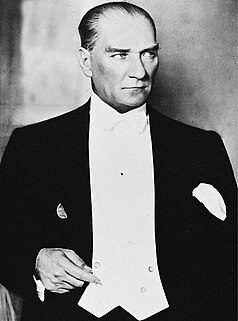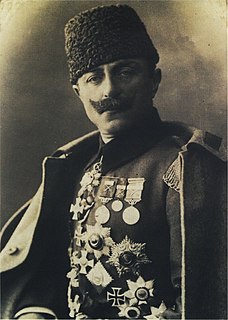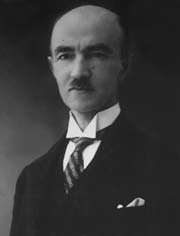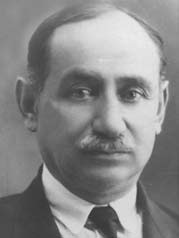 W
WHalit Akmansü also known as Dadaylı Halit Bey was an officer of the Ottoman Army and the Turkish Army.
 W
WMuhittin Akyüz, known as Muhiddin Pasha until 1934, was a Turkish military officer and diplomat. He served for both the Ottoman Army and the Turkish Army.
 W
WKemal Atatürk was a Turkish field marshal, revolutionary statesman, author, and the founding father of the Republic of Turkey, serving as its first president from 1923 until his death in 1938. He undertook sweeping progressive reforms, which modernized Turkey into a secular, industrial nation. Ideologically a secularist and nationalist, his policies and theories became known as Kemalism. Due to his military and political accomplishments, Atatürk is regarded as one of the most important political leaders of the 20th century.
 W
WOswald Boelcke was a German flying ace of the First World War credited with 40 victories; he was one of the most influential patrol leaders and tacticians of the early years of air combat. Boelcke is honored as the father of the German fighter air force, as well as considered the "Father of Air Fighting Tactics".
 W
WHans-Joachim Buddecke was a German flying ace in World War I, credited with thirteen victories. He was the third ace, after Max Immelmann and Oswald Boelcke, to earn the Blue Max. He saw combat in three theaters during the First World War: Bulgaria, Turkey, and the Western Front.
 W
WCevat Çobanlı was a military commander of the Ottoman Army, War Minister of the Ottoman Empire and a general of the Turkish Army.
 W
WCemil Conk was a decorated officer of the Ottoman Army and a general of the Turkish Army. He received as surname the name of Conk Bayırı, where he successfully fought at the Battle of Chunuk Bair during World War I.
 W
WAhmet Naci Eldeniz was an officer of the Ottoman Army, a general of the Turkish Army, and a politician of the Republic of Turkey.
 W
WFriedrich Freiherr von Georgi was a General of the Austro-Hungarian Army.
 W
WHüsrev Gerede was a Turkish diplomat and career officer, who served in the Ottoman Army and the Turkish Army.
 W
WBaron Samu Hazai was a Hungarian military officer and politician of Jewish origin, who served as Minister of Defence of Hungary between 1910 and 1917.
 W
WHeino von Heimburg was a German U-boat commander in the Kaiserliche Marine during World War I and served also as Vizeadmiral in the Kriegsmarine during World War II.
 W
WOsman Nuri Koptagel was an officer of the Ottoman Army and a general of the Turkish Army.
 W
WOtto Viktor Karl Liman von Sanders was a German general who served as an adviser and military commander to the Ottoman Empire during the First World War. In 1918 he commanded an Ottoman army during the Sinai and Palestine Campaign.
 W
WWilhelm Marschall was a German admiral during World War II. He was also a recipient of the Pour le Mérite which he received as commander of the German U-boat UB-105 during World War I. The Pour le Mérite was the Kingdom of Prussia's highest military order for German officers until the end of World War I.
 W
WGraf Helmuth Karl Bernhard von Moltke was a Prussian field marshal. The chief of staff of the Prussian Army for thirty years, he is regarded as the creator of a new, more modern method of directing armies in the field. He commanded troops in Europe and the Middle East, commanding during the Second Schleswig War, Austro-Prussian War and the Franco-Prussian War. He is described as embodying "Prussian military organization and tactical genius." He was fascinated with railways and pioneered their military usage. He is often referred to as Moltke the Elder to distinguish him from his nephew Helmuth Johann Ludwig von Moltke, who commanded the German Army at the outbreak of World War I.
 W
WArif Örgüç, also known as Mehmet Arif Örgüç, Hacı Arif Örgüç was an officer of the Ottoman Army and the Turkish Army.
Veysel Özgür was an officer of the Ottoman Army and the Turkish Army.
 W
WRüştü Pasha or Rushdi Pasha was an officer of the Ottoman Army and a general of the Turkish Army. He became a leader of the Progressive Republican Party, being a member of its Central Administrative Committee. He was hanged for attending the İzmir assassination attempt against Mustafa Kemal (Atatürk) in 1926.
 W
WRudolf Freiherr Stöger-Steiner von Steinstätten was a colonel general in the Austro-Hungarian army and served as the last Imperial Minister for War not only to the Austro-Hungarian Empire but also to the ancient Habsburg monarchy which sat at its head.
 W
WMohamed Tewfik Pasha, also known as Tawfiq of Egypt, was khedive of Egypt and the Sudan between 1879 and 1892 and the sixth ruler from the Muhammad Ali Dynasty.
 W
WStefan Toshev was a Bulgarian general, from World War I. His mother was a teacher from the period of the National Revival. He volunteered in the Bulgarian Opalchentsi Corps during the Russo-Turkish War (1877–1878) and later served as a translator. On 10 May 1879, he graduated from the Military School in Sofia in its first year. Then he served in the Police force of Eastern Rumelia.
 W
WMünip Uzsoy was an officer of the Ottoman Army and the Turkish Army. The family name is often listed as "Özsoy", and occasionally as "Urgay".
 W
WŞerif Yaçağaz was a Turkish career officer, civil servant and antisemitic politician, who served as an officer in the Ottoman Army and the Turkish Army. His antisemitic and anti-communist lectures drew the attention of Turkish nationalist Nihâl Atsız.